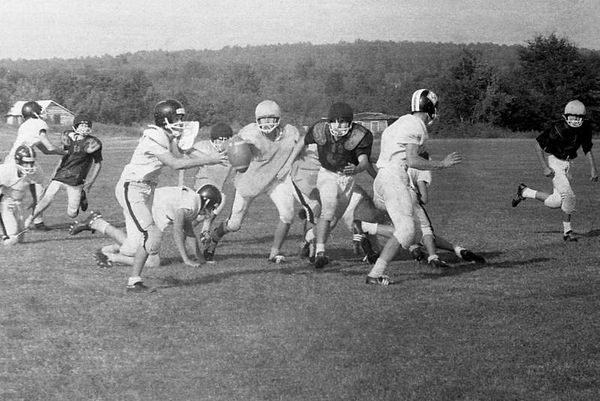 There is an organization that I am a part of that is very near and dear to my heart. I have been an active part of that organization for my entire life. I have been involved in various leadership roles for 30 years. And we are about to embark on the path to a change in leadership. This change is completely voluntary. Our current leader is accepting the call to move on to a new challenge. So, don’t be concerned that there has been an uprising or mutiny. But a change in leadership is coming because of that nonetheless.
There is an organization that I am a part of that is very near and dear to my heart. I have been an active part of that organization for my entire life. I have been involved in various leadership roles for 30 years. And we are about to embark on the path to a change in leadership. This change is completely voluntary. Our current leader is accepting the call to move on to a new challenge. So, don’t be concerned that there has been an uprising or mutiny. But a change in leadership is coming because of that nonetheless.
What are some things that an organization should consider in selecting a new leader? Consider with me the following as a partial list of key skills, abilities, traits or tendencies. It is not an exhaustive list by any stretch. But it may spur some thoughts and ideas as the organization moves forward with selecting and calling new leadership.
- Leadership – This one almost goes without saying. When selecting a leader, make sure they have demonstrated leadership before.
- Past Performance / Results – when searching for a new leader, do your research. Check out the leadership candidate. Has he/she demonstrated strong leadership in the past? Do they get results?
- Part of Something Bigger – Each of us is a part of a much larger organization. And we should consider that we are building something that is larger than our local organization and it should fit well with the larger organization.
- Learn From Mistakes – Everybody makes them. How does the leadership candidate show that they have learned from mistakes made in the past?
- Fit Within the System or Personality of the Organization – Does the candidate mesh with the organizations overall system or personality? If not, you are destined for conflict.
- Understand Their Strengths And Weaknesses – Both the leadership candidate and the organization need to understand their respective strengths and weaknesses and each other’s as well.
- Hard Worker – Are they a hard worker who exhibits high effort? This is key if they are to lead an organization largely comprised of volunteers.
- Are They a Finisher? – It is one thing to come up with great ideas. But can they execute the ideas and drive them to completion?
- Are They a Team Player? – Yes, they can lead. But can they get along with the rest of the team and with the whole organization?
- Problem Solver – It is one thing to identify problems. That is the easy part. Can they solve problems? Can they work together with the leadership team to find creative solutions?
- People Skills – This one is a skill that cannot be learned. It is often an intuitive and innate one. But, even those without great people skills can develop a “warmer” persona and demonstrate real care and concern for those people who make up the organization.
- Consistency – The need for long patterns of demonstrated leadership is great. Being able to do something for a short time is one thing. Being able to be a successful leader for a long period of time is quite another.
- Stability – What is their personal and private life like? Is there drama at home? There will be drama (or at least diminished success) at the office.
- Charisma – Are they charismatic and dynamic as a leader? No one wants a boring and lifeless leader.
- Are They Being Mentored? – They may be an established leader. But are they actively being coached or mentored? If they feel they don’t need help, then they need it more than they can imagine. There should be a plan for continual improvement.
- Ability To Prioritize – No one can get everything done that needs to get done. So, can they prioritize and focus on the things that have the potential for the greatest impact?
- Mental Toughness/ Personal Tenderness – Are they mentally tough enough to take the slings and arrows of leadership? Yet, are they personally tender and compassionate with an ability to speak to the organization with love and tenderness?
- Capacity – Do they have the capacity to grow as the organization grows?
- Listening Skills – It is assumed they can verbalize and vocalize. But can they listen?
This is not a complete or perfect list. But, It should help organizations in the midst of leadership change or who are contemplating a change in leadership.
What traits or abilities would you add to the list?
Photo credit: larry_odebrecht / Foter.com / CC BY
and
Photo credit: supersum (off) / Foter.com / CC BY-SA










